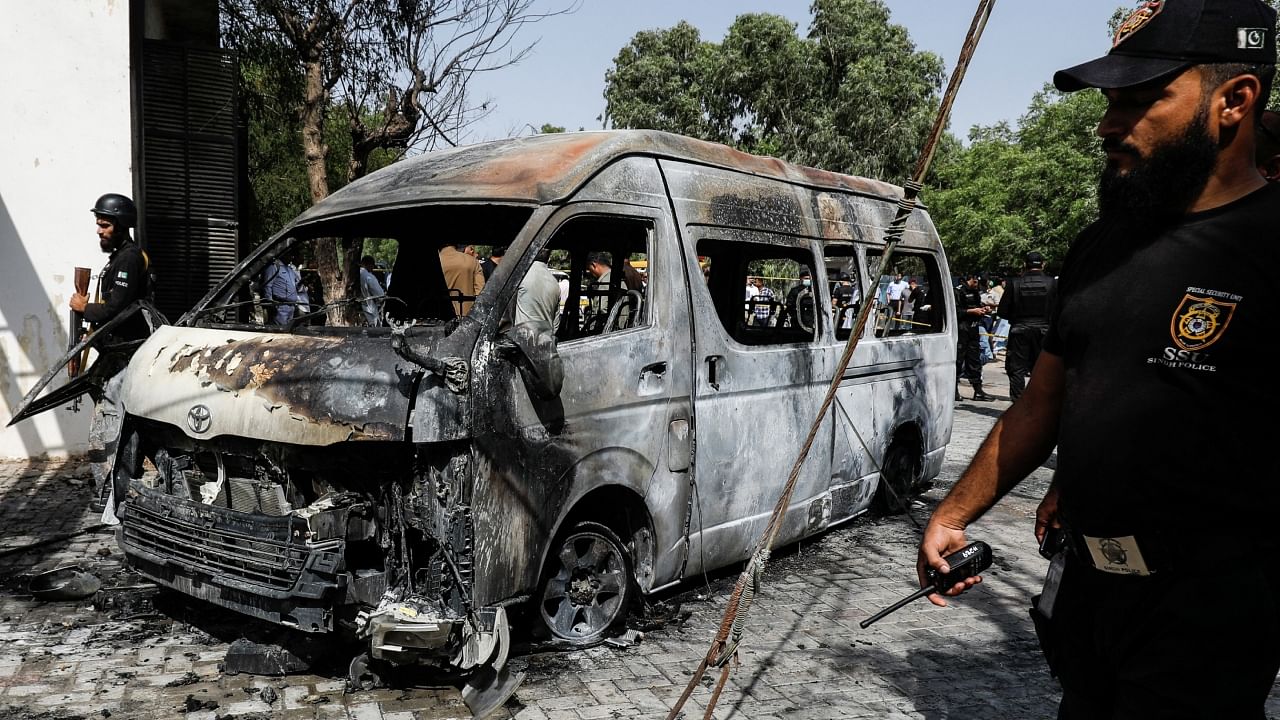
Pakistani authorities, unable to guarantee the safety of Chinese nationals on their land, are now shutting down businesses run and frequented by them, Nikkei Asia reported.
China, which recently reportedly released a rollover of $2 billion in deposits towards Pakistan's central bank to help the financially embattled country secure a larger IMF bailout tranche, is an extremely important player as far as the country's supporters on the international stage are concerned.
China has invested billions of dollars in the China-Pakistan Economic Corridor (CPEC), which runs through territory claimed by India (in Pakistan-occupied Kashmir), as part of its mammoth Belt and Road Inititative (BRI).
Also Read | Pak Army chief played role in securing funds from Saudi & UAE to fulfill IMF pre-conditions: PM Sharif
A major challenge to CPEC investments, many of which are either completed or underway, including in Pakistan's Gwadar port city, is the security situation on the ground. In April 2022, a female suicide bomber killed three Chinese teachers along with their Pakistani driver in front of the Confucius Institute at the University of Karachi.
The Baloch National Army (BLA), a banned insurgent group that advocates for Baloch separatism, claimed responsibility for the attack and issued a video threatening Chinese nationals in Pakistan. Gwadar, the crown jewel of Chinese investments in the country, falls under the impoverished and under-represented Balochistan province.
Again, in September of last year, a lone shooter opened fire on Chinese Pakistani 'dual nationals' (China doesn’t allow dual citizenship; Pakistan does) at a dental clinic in Karachi, killing one person and injuring two others. Ethnic Sindh separatists claimed responsibility for the attack, again blaming what they termed China's exploitation of the Sindh province's resources.
On July 14 2021, a bus blast killed 13 people, including nine Chinese nationals in Pakistan's North Waziristan province, an attack for which the Pakistani Taliban claimed responsibility. Previously, the Chinese Consulate in Karachi was the target of attacks in November of 2018. And yesterday (April 17), police in Pakistan's Khyber Pakhtunkhwa province reportedly arrested a Chinese national after he was attacked by an angry mob for alleged "blasphemy". The Chinese national has been identified as an engineer at the Dasu Dam, Pakistan's largest hydropower project.
In the face of these growing threats to Chinese nationals, Nikkei Asia reported that Karachi police are sealing off some Chinese businesses given adverse intelligence that indicated possible attacks. Local officials told the publication, "Despite repeated warnings, several Chinese-owned businesses failed to implement security protocols, leading to their sealing until satisfactory security arrangements are made".
Local police authorities reportedly closed down businesses, including a Chinese restaurant, a supermarket, and a marine product company, as they did not comply with the safety protocols mandated in the Sindh Security of Vulnerable Establishments Act, a provincial law that is designed to protect establishments deemed under threat.
Given the situation, China temporarily closed down the consular service hall of its embassy in Pakistan in February of this year citing “technical issues”, just days after it advised Chinese citizens in the country to be cautious of the deteriorating security conditions.